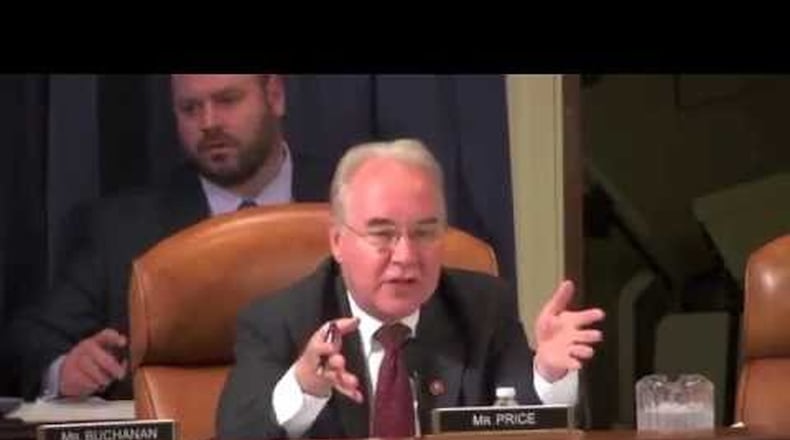You may have never heard of the National Practitioner Data Bank, but there’s a good chance your doctor has. It’s the only national database that tracks professionally disciplined doctors across the country, ensuring that they can’t hop from state-to-state to escape their troubled pasts.
That unique role has also put the data bank in the crosshairs of physician advocacy groups, who have supported limits on public access to the database, as well as what gets reported to it in the first place.
Now, the data bank may become an issue again with the nomination of Georgia Congressman Tom Price – a physician – to lead the Department of Health and Human Services.
In 2011, Price co-sponsored a bill called the Health Care Professionals Protection Act that would have placed additional restrictions on reports to the data bank.
The bill would have barred hospitals from reporting physicians under investigation for wrongdoing until “adequate notice and hearing procedures” were provided to the physicians. This would have overridden an existing requirement for hospitals to report any disciplinary action lasting more than 30 days and to report anyone who resigns while under investigation, whether the physician has been formally notified of the investigation or not.
That could have allowed a doctor to continue practicing without being reported to the data bank for months — and possibly apply to practice elsewhere — while hospitals investigated whether he or she sexually abused a patient, botched surgeries or committed other violations.
The bill also could have made it easier for physicians to sue a hospital for filing a report before then.
A spokesman for president-elect Donald Trump’s transition team declined to make Price available for an interview and did not immediately respond to questions by email.
As it is, the data bank reporting process is deeply flawed, the AJC found as part of its national investigation into doctors and sexual abuse of patients. After creating its own database of disciplined doctors by gathering orders from the nation's 64 medical regulatory agencies, the AJC identified numerous cases in which hospitals had disciplined physicians but not reported them to the data bank, exploiting loopholes in the existing law.
Dr. Jane Orient, a spokeswoman for the Association of American Physicians and Surgeons, said Price’s bill would have promoted basic fairness and due process in the reporting process.
“If a physician assaults a patient it is a crime and will get reported—after the physician, like anybody else, gets a chance to defend himself in court,” she told the AJC.
However, Robert Oshel, a retired former federal official who worked with the data bank program at the U.S. Health Resources and Services Administration, described the bill as “almost a solution in search of a problem.”
“In my experience supervising Secretarial Review cases involving disputed hospital reports, there were very few cases in which it seemed to me that hospitals acted without good cause or with unfair procedures,” Oshel wrote in an email to the AJC. He believes the bill would have made it easier for questionable physicians to resign from a hospital prior to the formal start of a investigation, without being reported to the data bank.
Ultimately, the bill failed to pass. But as head of DHHS, Price would be in charge of overseeing the data bank program, a position that concerns consumer advocate Dr. Michael Carome, director of the Health Research Group at Public Citizen.
While Carome notes that Price couldn’t make major changes to the program without new legislation from Congress, he said Price could issue policy guidelines that weaken reporting to the data bank.
“I think he’s someone who would do whatever he could do to try to weaken the National Practitioner Data Bank,” Carome told the AJC. “And that would undermine what is a very valuable resource for tracking physician misconduct and protecting patients from bad doctors.”
About the Author
Keep Reading
The Latest
Featured


